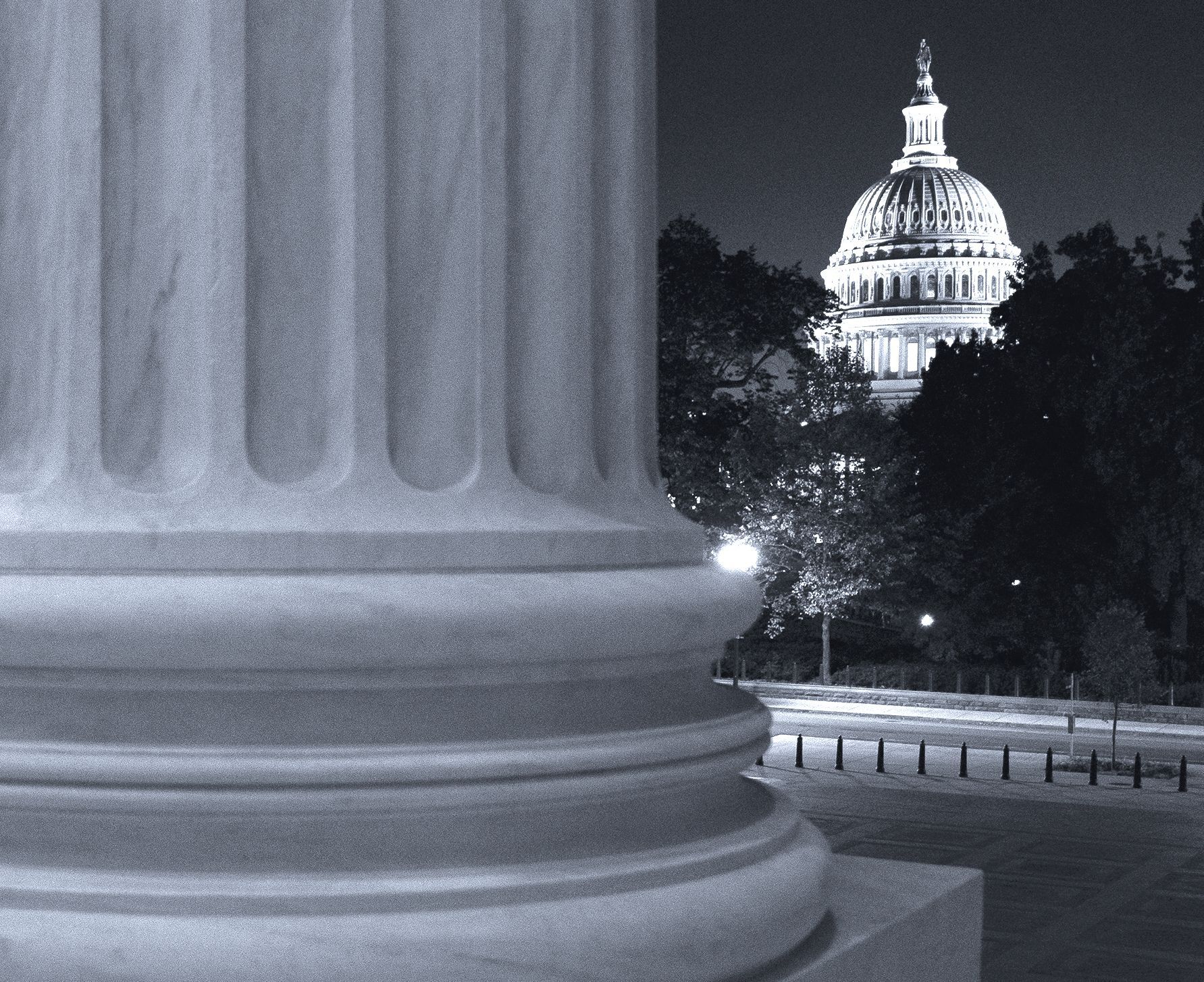
On July 11, 2019, Assistant Attorney General Makan Delrahim of the U.S. Department of Justice (DOJ) announced a new policy to incentivize corporate antitrust compliance.1 The DOJ will, for the first time, formally consider corporate antitrust compliance programs at both the charging and sentencing stages in criminal antitrust prosecutions. The DOJ's new policy is reflected in revisions to the Justice Manual as well as a newly published guidance document (the guidelines).2
In addition to urging DOJ prosecutors to consider corporate antitrust compliance programs at the charging and sentencing stages of investigations, the policy changes are intended to provide corporate compliance officers with transparency regarding how the DOJ evaluates such programs as well as the benefits of having robust internal compliance.
Evaluating Compliance at the Charging Stage
The DOJ's announcement marks a sharp departure from its long-standing policies "that credit should not be given at the charging stage for a compliance program"3 in a criminal antitrust investigation and that antitrust violations "mandate prosecutions of corporations notwithstanding the existence of a compliance program."4Such language has consequently been removed from the Justice Manual, and the Antitrust Division Manual has also been updated to require DOJ prosecutors to consider compliance programs in its corporate charging recommendations.5
The charging section of the new guidelines builds upon the three fundamental questions that the Justice Manual asks all DOJ prosecutors to consider, namely whether a compliance program is: (i) well-designed; (ii) applied earnestly and in good faith; and (iii) works in practice.6 The guidelines provide a framework by which prosecutors should assess these questions in the context of antitrust compliance programs by urging prosecutors to consider as a preliminary matter whether the compliance program prohibits antitrust violations, aids in detecting violations and facilitating prompt reporting, and whether senior management was involved in the violation.7 The guidelines also identify nine elements that prosecutors should consider in evaluating a compliance program's effectiveness, which are outlined below.8
- Design and Comprehensiveness. An antitrust compliance program must be adequately integrated into the company's business, and employees must be able to readily access antitrust compliance resources. Prosecutors could look to whether the program predates the violation, materials are in writing, guidance is given to employees, and there are document preservation or destruction issues.
- Compliance Culture. The program must promote a culture that reflects the company's commitment to compliance. Prosecutors can consider how senior leadership communicates a message of compliance to employees, and also take into account whether leadership has tolerated problematic conduct in pursuit of business goals and whether leadership has taken personal accountability for compliance failures.
- Responsibility. Employees responsible for the program must have "sufficient autonomy, authority, and seniority" in the company as well as "adequate resources" to carry out the program.
- Risk Assessment. The program must be customized to account for antitrust risk and detect misconduct that is most likely to occur in the company's industry or market.
- Training and Communication. Employees must receive adequate training and communication from leadership so that they understand their antitrust compliance obligations.
- Periodic Review, Monitoring, and Auditing. The company must regularly review and update or modify the program as necessary and to address antitrust risks that arise.
- Reporting. The program must include reporting mechanisms for employees to anonymously or confidentially report potential antitrust violations without fear of retaliation. Whether employees are obligated to report such potential violations is also a consideration.
- Incentives and Discipline. The program must incentivize employees for compliance and discipline employees who violate the antitrust compliance policy. Employment status and positions of culpable employees, particularly those who have not cooperated, are specifically identified as factors to consider.
- Discovery and Remediation. Whether the program played a role in uncovering an antitrust violation and the response of the company to that discovery are also considerations. Moreover, the company must engage in remedial efforts and take steps to improve its compliance program in response to a violation to help prevent recurrence.
These factors do not constitute a "checklist or formula," and the guidelines note that certain factors may not be relevant in all cases.9 However, the elements offer a template as to how a company can build and implement a compliance program that the DOJ would deem effective, and—should it be so effective as to identify problematic conduct—that the DOJ would credit in "deciding whether and to what extent" it may bring criminal charges against the company for that conduct. The possibility of avoiding criminal charges in whole or in part is unquestionably a significant advantage of developing, implementing, and maintaining a robust internal antitrust compliance program. Pursuant to these new guidelines, the DOJ formally offers that possibility for the first time.
Evaluating Compliance at the Sentencing Stage
Since 2015, we have observed a gradual policy evolution at the sentencing stage as the DOJ has, in certain circumstances, taken into consideration an antitrust compliance program in its sentencing recommendation. The DOJ, for instance, credited improvements to Barclays' compliance program in recommending a reduced criminal fine,10 and also similarly credited Kayaba Industry for its forward-looking compliance efforts.11 The new guidelines perhaps mark the culmination of this shift and formally outline how prosecutors should evaluate whether to recommend a sentencing reduction based on a company's antitrust compliance program in three primary ways.
First, under the U.S. Sentencing Guidelines, a corporate defendant's culpability score can receive a modest reduction if the company has an "effective" compliance program. There is, however, a rebuttable presumption that a compliance program is not effective when high-level personnel participated in the violation.12 The guidelines instruct prosecutors to consider whether that presumption applies and can be rebutted, taking into account factors like whether those in charge of the compliance program participated in the conduct, whether the program detected the conduct before it was discovered outside the company, and whether the company promptly reported the conduct to the DOJ.13
Second, under the DOJ's new guidelines, prosecutors can consider whether a company implemented an effective compliance program in determining whether to recommend probation. The guidelines leave open the possibility that, if a company lacks an "effective" compliance program but takes steps to shore it up expeditiously, the DOJ will not recommend probation, and with it, all of the attendant obligations such as periodic compliance reports or even an external compliance monitor.14
Third, the DOJ's new guidelines also recommend that prosecutors take into account whether "extraordinary post-violation compliance efforts" justify a reduction in the criminal fine recommended by the DOJ, either by recommending a fine on the low end of the guidelines range or even by recommending a downward departure from the range entirely. DOJ prosecutors will look for a "dedicated effort" by senior management to reform a company's compliance culture, coupled with other concrete steps to prevent recurrence. The guidelines recommend that prosecutors consider whether management required adherence to the compliance program and employee participation in trainings; whether the company reviewed and modified the program accordingly following the violation; and whether employees responsible were disciplined. Such considerations suggest that companies that take swift action to address potential violations, even after they occur, may yet receive some degree of sentencing credit for doing so.
Deferred Prosecution Agreements
Although not mentioned specifically in the new guidelines, the guidelines may provide an important opportunity for resolution of criminal antitrust violations: Deferred Prosecution Agreements (DPAs). As Assistant Attorney General Delrahim noted upon announcing the new compliance policy, the DOJ will now be able to offer a DPA to companies where circumstances, including "the adequacy and effectiveness" of the company's antitrust compliance program, "weigh in favor of doing so."15
Under a DPA, prosecutors refrain from prosecuting a company provided it takes certain steps outlined by the agreement. This development is significant, as the DOJ's previous approach required all companies other than the leniency applicant to plead guilty to an antitrust crime in federal court, even if they were to receive credit at sentencing or a reduced sentencing recommendation.
Under a DPA, a company could potentially avoid a criminal plea or conviction and all of the collateral consequences. To be clear, however, the DOJ is likely to impose significant obligations on a company under a DPA, and simply having a robust compliance program will not be sufficient to avoid prosecution. The extent to which a company cooperates with a DOJ investigation is likely to weigh significantly on whether the DOJ offers a DPA; we will see in the years ahead how the DOJ uses this new tool in furtherance of its criminal enforcement efforts.
Compliance Is Critical
The DOJ's announcement of the new antitrust compliance guidelines and its shift in approach to compliance credit is an important milestone in the evolution of the DOJ's antitrust criminal enforcement program. Importantly, it offers added opportunity for companies who strive to build robust compliance programs, which in fact succeed in detecting problematic conduct, to receive some benefit or credit for their efforts. The guidelines present a detailed template for a comprehensive company compliance program—in the criminal antitrust context and perhaps even more generally—and it is even possible that the DOJ's emphasis on compliance in the antitrust context could prompt other agencies to revisit their own compliance guidance. In light of this development, companies are well advised to evaluate their own compliance efforts to ensure that they are in line with the recommendations contained in the guidelines, and should any potentially problematic conduct be uncovered by the program, act expeditiously to respond, including seeking the advice of counsel to determine whether to self-report.
For more information about the Antitrust Division's new policy or any related matter, please contact Mark Rosman, Jeff VanHooreweghe, Jonathan Jacobson, Wendy Waszmer, or any member of the antitrust practice at Wilson Sonsini Goodrich & Rosati.
Contributors
- Privacy Policy
- Terms of Use
- Accessibility


